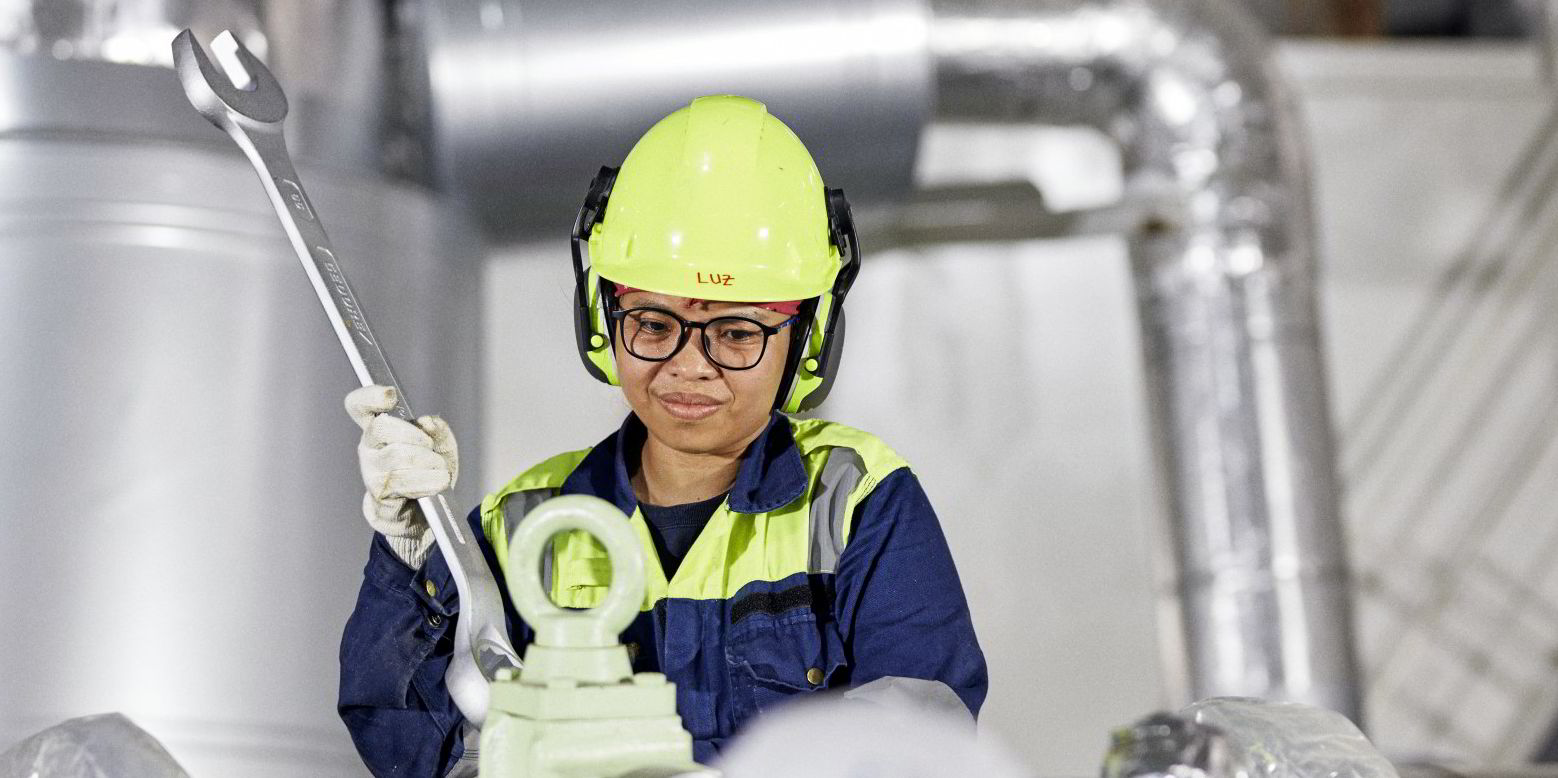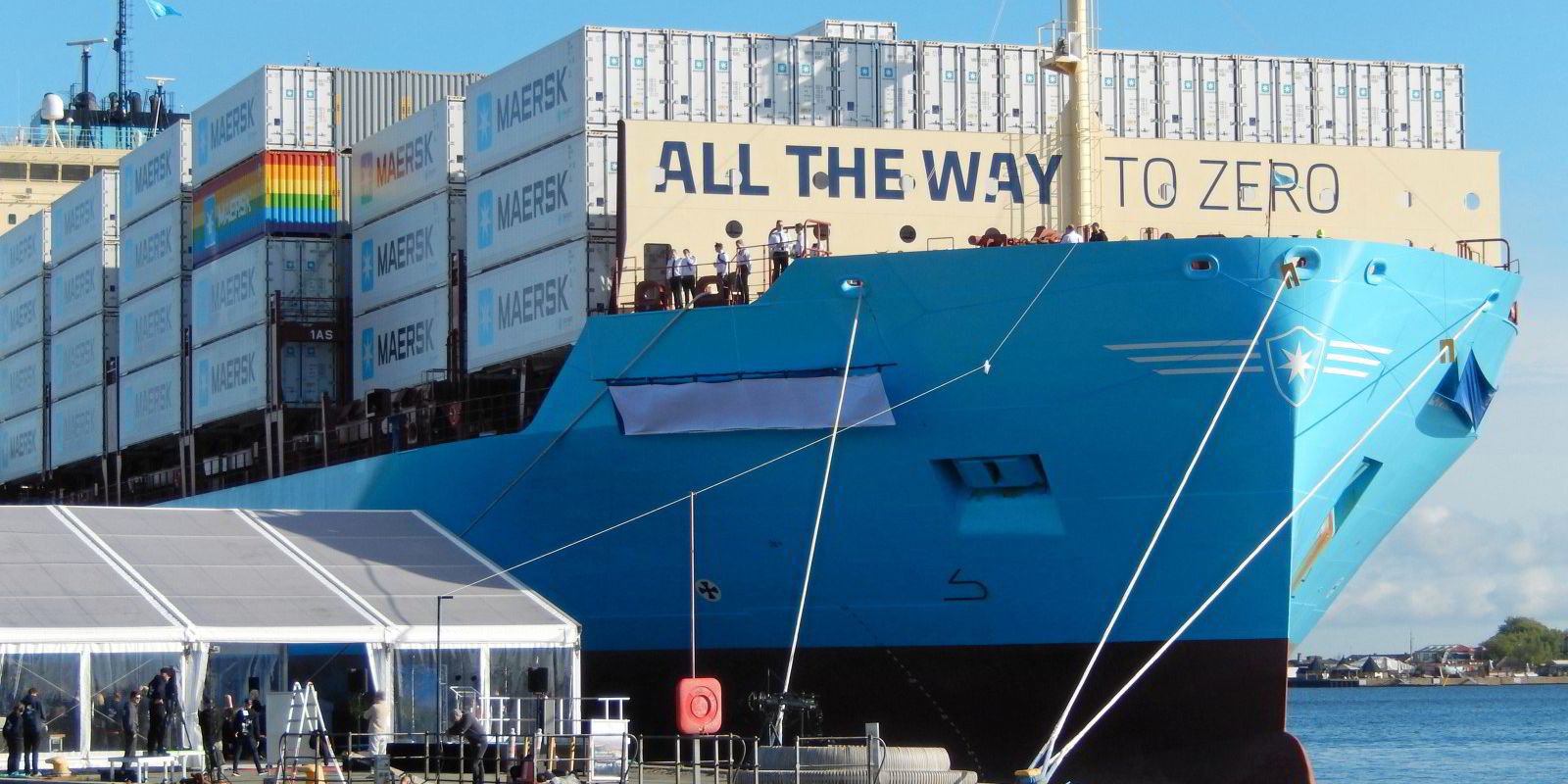Have we all been hoodwinked? It is barely two years since AP Moller-Maersk said it “would not be using transition fuels”. The Danish liner giant would “instead leapfrog directly to net-zero fuels”, then chief executive Soren Skou said.
That was early in 2021, when most liner operators were lauding LNG and scrubber technology.
Maersk saw methanol as the future. It was a pioneering move and the company should be commended for taking the first steps to decarbonise liner shipping with a new technology.
The trouble is, the more you learn about green methanol, the more troublesome it becomes.
And it is increasingly apparent that Maersk thinks the same.
At the naming of the methanol-powered 2,100-teu Laura Maersk (built 2023) in Copenhagen on 14 September, Skou’s replacement, Vincent Clerc, talked freely about ammonia. (I may have even heard Clerc whisper the word “nuclear” in his speech, but, shocked, I can’t quite be sure.)
The point is, Maersk has had its eye on other alternative fuels for some time. We just hadn’t picked up on the cues.
Maersk no longer sees methanol as a panacea for shipping’s green ambitions. And nor should we.
The reason is clear.
Methanol-powered ships have been ordered at a cracking pace in the past year. There are about 125 container ships on order, besides the 25 that Maersk has in the pipeline, plus around 50 from other shipping sectors.
That goes a long way to solving the chicken-and-egg dilemma by creating a market for methanol while positioning Maersk as shipping’s green fuel leader.
Despite that, the technology remains an imperfect solution. My chemistry is not great, and I was surprised to learn that burning methanol emits carbon. That strikes me as counterintuitive and problematic.
So I sought an expert view from London academic researcher and scientist Tristan Smith.
His verdict? Green methanol isn’t as green as is made out to be. But it depends on how it is made.
Methanol emits carbon: the molecule is composed of carbon, hydrogen and oxygen atoms — so you get CO2 and water vapour at the point of combustion, according to Smith.
Whether that is a problem depends on the origins of the CO2 used to make the methanol.

Methanol made from biomass is, in some people’s view, the same as biofuel. That implies that biomethanol/biofuel has been disingenuously rebranded by Maersk as “green methanol”.
For some people, green methanol is made 100% from renewable energy.
Biomethanol is likely to have the same issues as any other biofuel, which is scarce and difficult to scale in sufficient quantities for shipping.
So while biofuels will be used, they will increasingly be priced out and uncompetitive relative to hydrogen-derived fuels, Smith believes.
That leaves methanol pioneers such as Maersk with the option of making methanol from renewable electricity.
For that, you need green hydrogen and a source of renewable carbon. The only sustainable supply of renewable carbon (avoiding biogenetic sources such as trees and food) is through direct air capture.
Methanol produced in this way has the same greenhouse gas intensity reduction as green ammonia, says Smith. But it is 30% to 50% more expensive from a total operational cost perspective.
So the only way methanol produced in that way can be competitive is if ammonia is not viable. For me, that is a disappointing but more realistic take on methanol. This leads to the conclusion that methanol cannot be a major long-term prospect for shipping decarbonisation.
So why did people — myself included — buy into the hype?
Part of it was because Maersk was so good at marketing itself to shippers that wanted to go green.
The owner wanted to move fast on decarbonisation, and methanol was an area in which it could act immediately while attracting plaudits for its efforts to decarbonise.
The trouble is, that takes financial resources away from what Maersk originally promised — a genuinely zero-emission fuel.
Would the billions of dollars being pumped into dual-fuel methanol vessels have been better invested in a technology that will truly decarbonise shipping? Probably. Time will tell.







